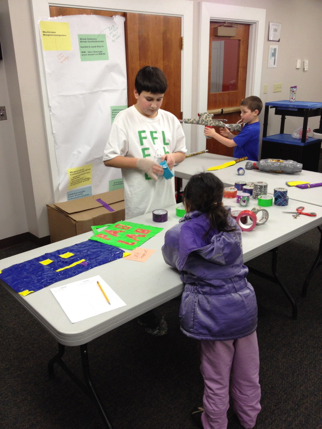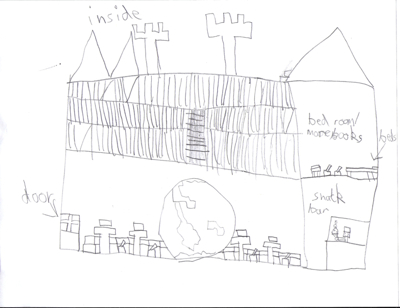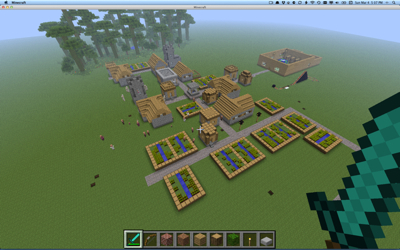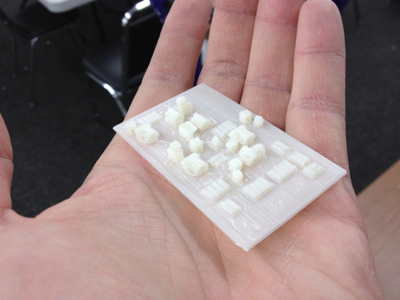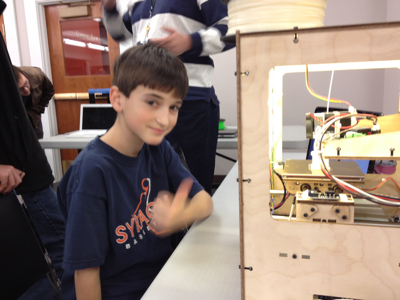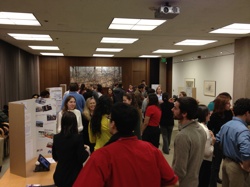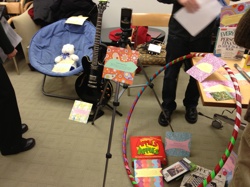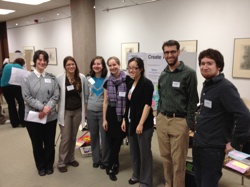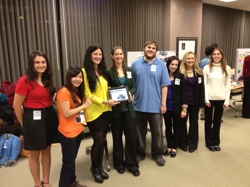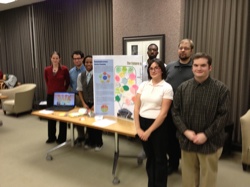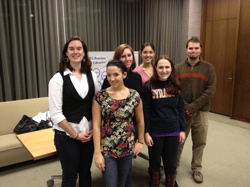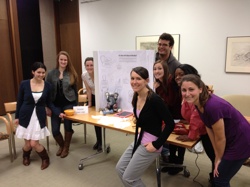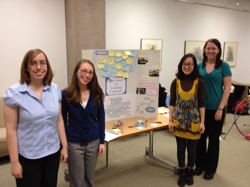With the announcement of the New Librarianship Master Class we’ve received a number of questions. The FAQ below is a set of answers to these questions (this document should be linked off the course site very soon).
New Librarianship Master Class Frequently Asked Questions
Do I have to be a librarian to take the class?
The class is oriented towards professionals with some experience in librarianship (including paraprofessionals). A background in librarianship is not required, but recommended.
Can you give more detail about what will be involved in the class?
There are two short videos which will give you an introduction to how the class will run and what it will be about. See:
Introduction to the Master Class http://vimeo.com/68302323
Introduction to New Librarianship http://vimeo.com/49680667
How much time do I need to commit to completing the class?
Between the videos, readings, and discussions, plan on 20 hours total for the course. If you are taking the Master Class for graduate credit more time and participation is expected.
I’m in a remote time zone can I still participate in the class?
The course is offered as an asynchronous online class. That means that while there is a weekly schedule, there are no real-time events or lectures. All lectures and materials are available on demand to match your schedule.
What if I can’t attend during July, will it be offered again?
The course will be online for free after July, but not for CEU or graduate credit, and without guaranteed faculty participation.
Can I do some work ahead of the course?
Weekly assignments and modules are based on readings from the Atlas of New Librarianship. If you want a head start you can read the 6 threads that constitute the first half of the Atlas. Once the class begins, there will be lectures to introduce these threads, and discussion areas to ask questions and discuss ideas presented.
Do I have to pay for it?
To participate in the class is free. If you wish to receive Continuing Education Units (CEUs) there is a $150 fee for 2.0 CEUs. To take the course for graduate credit you will need to pay $3882.00 $3,105.6 (thanks to a 20% tuition discount offered by the Dean) tuition and $50.00 fee for a three-credit course through Syracuse University and complete additional coursework through the month of August.
How do I enroll for CEUs credit?
- Student completes MOOC and selects an option for Assessment/CEU in early August
- Professor reviews student’s work on MOOC, designates a P (pass) for those who successfully complete the New Librarianship course material
- Professor sends the student a link to register and pay for the Assessment/CEU option
- Student completes the online registration form and payment process. The cost for 2.0 CEU credits (20 hours) is $150.00
- Student receives certificate via email
How do I enroll for graduate credit?
- Student submits completed registration form (link available July 1)
- The form and full payment are mailed or faxed to UC Bursar/Registration, due by August 1.
- Student completes Master Class with additional online work from August 4-August 23
- Student will create a blog and keep it up to date throughout the course
- Student will write a term paper on an approved aspect of New Librarianship
- Professor will submit a grade for the Independent Study course by August 30
- Student may request transcript from Syracuse University Registrar by after Sept. 13
What additional work is required for graduate credit?
In addition to completing the work laid out in the online course you will need to do weekly blog postings and complete a term paper on a theme from the Atlas of New Librarianship. This term paper will be in the form of an “Agreement Supplement” found in the second half of the Atlas.
Can I use these graduate credits in my own master’s program?
Transfer and use of credits is up to your program. We will happily supply the graduate course syllabus and any other information upon request.
Is there a Certificate of Completion if I choose not to get the CEUs?
Students who complete the class will receive an electronic certificate of completion.
Are there technical requirements for the course?
All you need is an Internet connected machine able to view online videos. You will also need to access the CourseSites website (http://www.coursesites.com). Near the start of the class (July 8) you will receive an email with specific instructions of logging into the course.
Will the videos be captioned for accessibility?
Lectures will be uploaded to YouTube for automatic captioning.
Can I use materials from the class in my own training and staff development?
We’ve worked hard to make the course “hackable.” Slides and videos from the class are released under the Creative Commons license. Lectures can be downloaded or embedded in any system that allows HTML.

